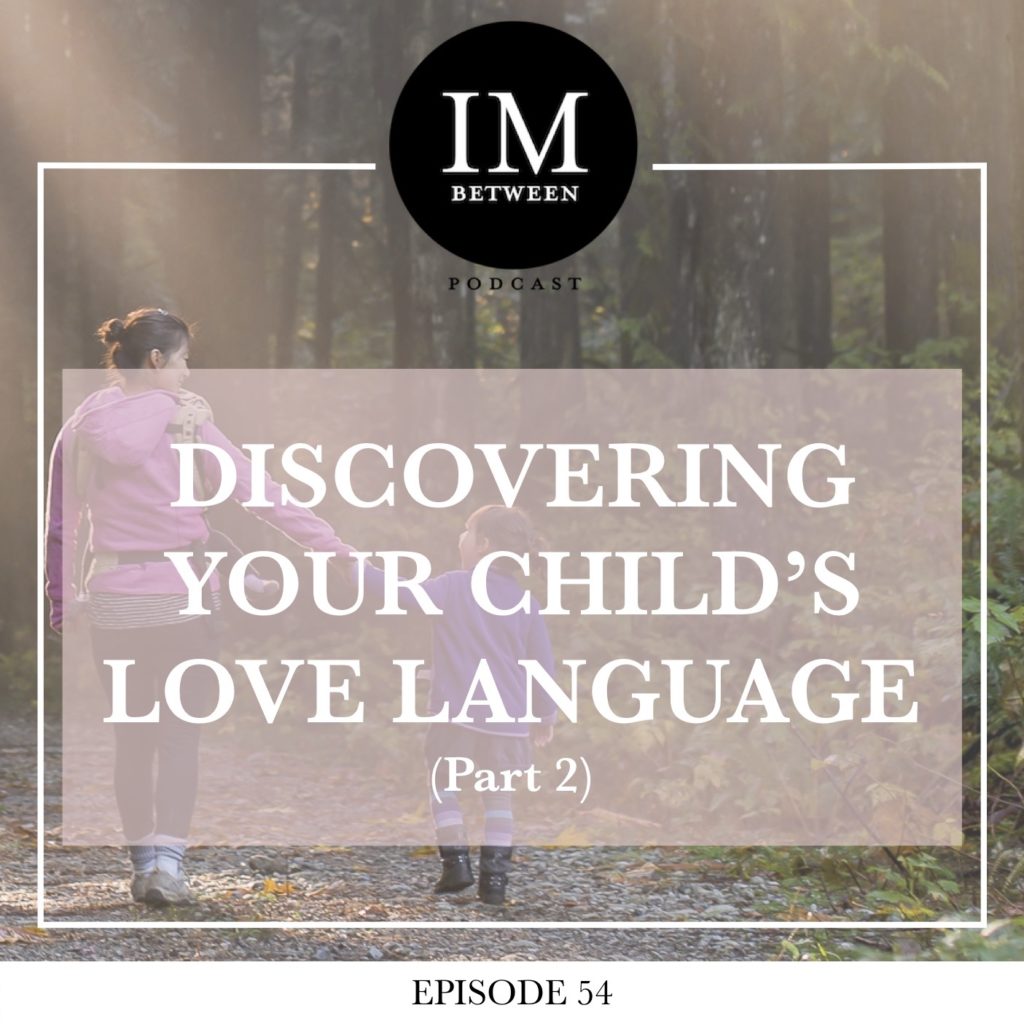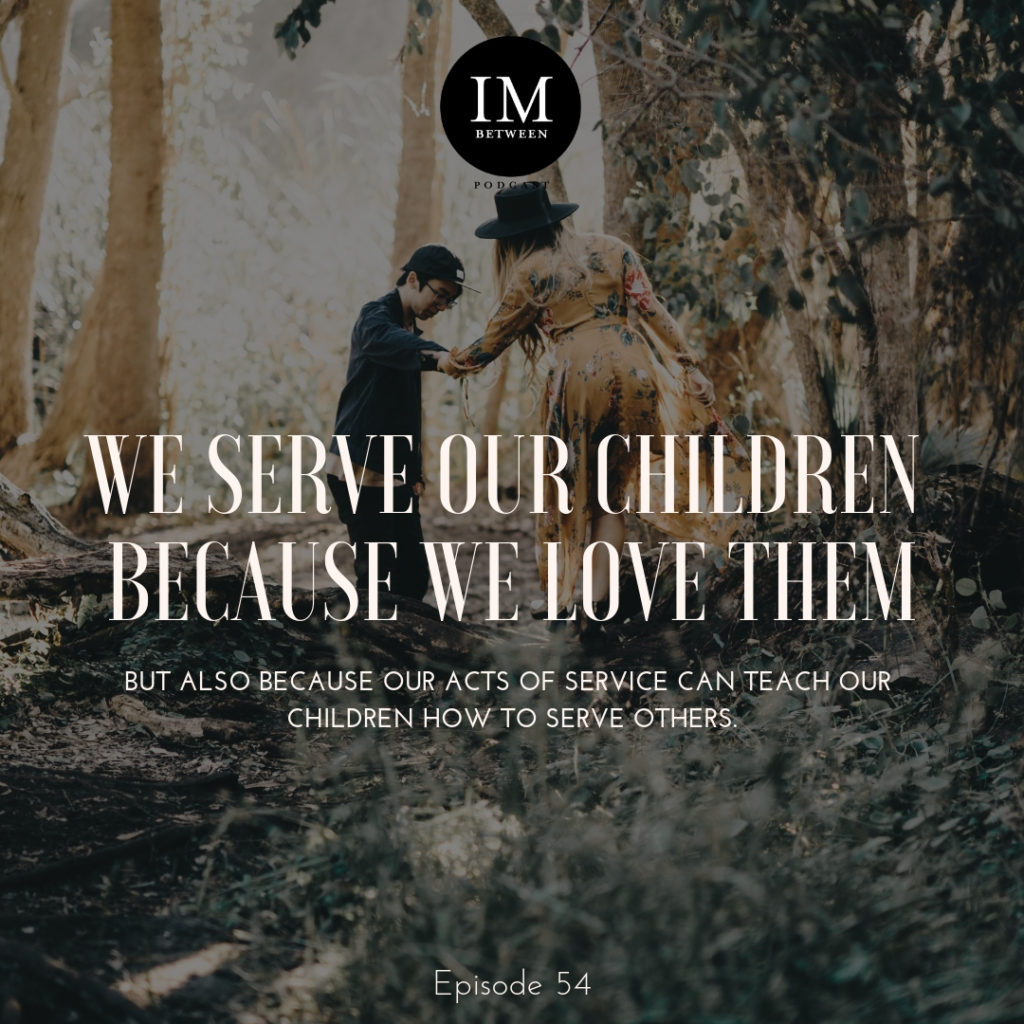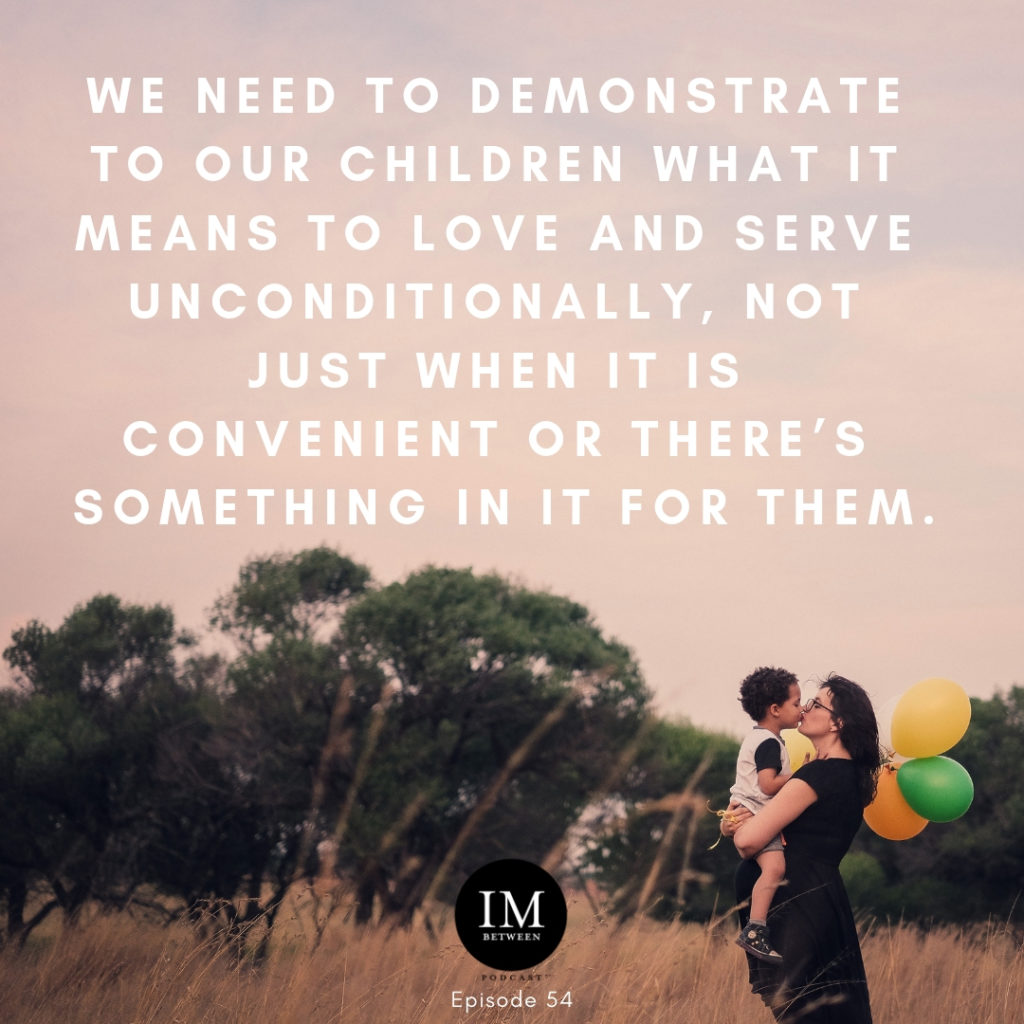In Episode 54 of The IMbetween Podcast, Daniel and Christina Im continue their discussion about The 5 Love Languages for Children. They describe the last two love languages – gifts and acts of service – and give you age-specific ideas about how to discover what your child’s love language is.
In This Episode, You Will Hear About:
- The remaining love languages – gifts and acts of service
- Out of the box ideas to show your child these particular love languages
- Age-specific ways to discover your child’s love language
Resources Mentioned During the Episode:
- If you missed the first part of this series, check it out here Episode 53: Discovering Your Child’s Love Language (Part 2)
- The Five Love Languages by Dr. Gary Chapman
- The Five Love Languages of Children by Dr. Gary Chapman and Dr. Ross Campbell
- The Five Love Languages quiz for children
- Listen to Annie F. Down’s podcast interview with Christine Caine here
- Want to listen to The Five Love Languages of Children for FREE? Go to Audibletrial.com/imbetween
Quotables:
- “The giving and receiving of gifts can be a powerful expression of love, at the time they are given and also extending into the later years.”
- “At times, parents who have every intention of offering a true gift may be sending confused messages if they ignore the child’s deep emotional need for love. A child who doesn’t feel truly loved can easily misinterpret a gift thinking it is conditionally given.”
- “A true gift is not a payment for services. It is not an exchange for good behavior. A gift really needs to be an expression of love for the child and needs to be freely given by the parent. It’s not given for the benefit of the parent. It is given for the benefit of the child.”
- “We can’t use gifts as a substitute for love.”
- “Do for your children what they cannot do for themselves.”
- “Each request really calls for wisdom and a thoughtful and loving response from the parents.”
- For children that have receiving gifts as their primary love language, it is more than receiving the material objects. The gift is a tangible expression of love that speak to them deeply.”
- “As parents, we serve our children – but our primary motivation is not to please them nor to ensure that they are “happy all the time.” Our purpose is to do what is best. We are trying to fill their love tanks. We serve our children because we love them, but also because our acts of service can teach our children how to serve themselves and others.”
- “More is caught than taught. We need to demonstrate to our children what it means to love and serve unconditionally, not just when it is convenient or there’s something in it for them.”
- “By speaking our child’s primary love language, but also teaching them to speak the other four as well, we are teaching them how to show love to others, even when it isn’t the way they would naturally show love.”
- “The main reason we want to discover our child’s primary love language is to give us the most effective means of communicating emotional love.”
Subscribe and Connect With Us:
- Apple Podcasts
- Stitcher
- Google Play
- Spotify
- Instagram – @imbetweenshow
- Twitter – @imbetweenshow
- Facebook – @imbetweenshow



